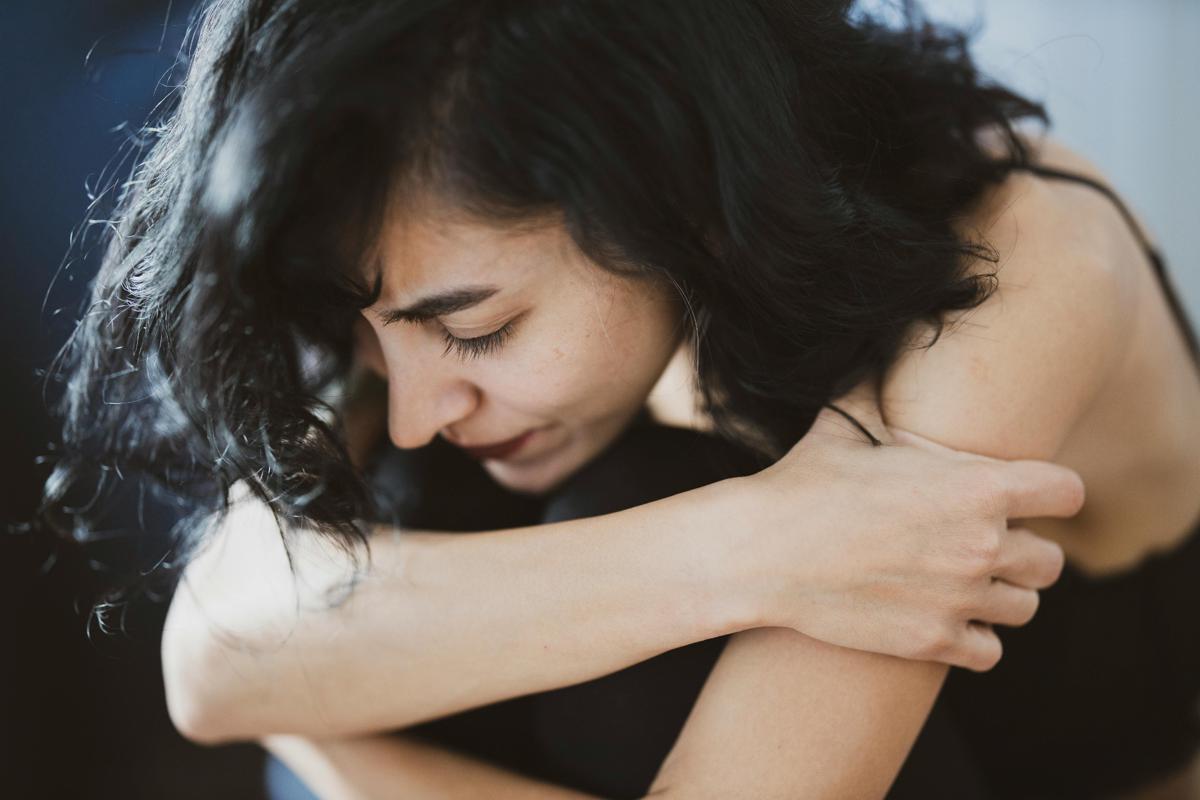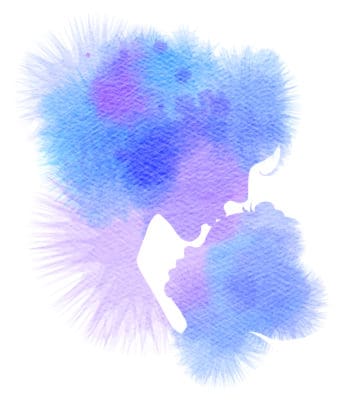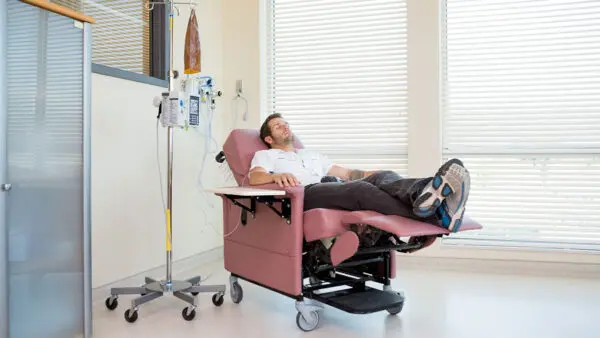In the evolving landscape of mental health treatment, psilocybin stands out as a beacon of innovative therapy for depression. This natural compound, found in ‘magic mushrooms‘, is at the forefront of a new wave of treatment, blending ancient practices with cutting-edge research. Let’s explore the intricacies of psilocybin and its potential as a transformative tool in battling depression.
Can Psilocybin Help With Depression?
Recent studies and anecdotal evidence suggest that psilocybin, the psychoactive compound found in magic mushrooms, holds significant promise in treating depression. By creating profound psychological changes, psilocybin therapy offers a novel approach to mental health treatment, challenging traditional paradigms. Some studies and personal accounts indicate that psilocybin can offer rapid, sustained relief from depressive symptoms, even in cases where traditional treatments have failed.
How Does Psilocybin Help With Depression?
Psilocybin aids in depression treatment by interacting with serotonin receptors in the brain, similar to traditional antidepressants, but with a crucial difference. It facilitates a profound psychological journey, providing users with deep insights and new perspectives. This process can lead to significant emotional healing, particularly by addressing and reprocessing underlying issues contributing to depression.
Benefits of Using Psilocybin for Depression
The therapeutic benefits of psilocybin for depression extends far beyond symptomatic relief, offering a multifaceted approach to mental wellness. Its benefits, as reported by patients and observed in clinical studies, are diverse and profound.
Rapid Improvement in Mood
One of the most notable benefits of psilocybin therapy is the speed at which it can improve mood. Unlike traditional antidepressants, which may take weeks to show effects, psilocybin can lead to a noticeable uplift in mood shortly after consumption. This rapid action is particularly crucial for those suffering from severe depressive episodes where immediate relief is crucial.
Decrease in Depressive Symptoms
Psilocybin has shown effectiveness in reducing various symptoms of depression, including feelings of hopelessness, lack of interest, and low energy. Individuals often report a significant decrease in these symptoms, contributing to an overall improvement in their quality of life.
Increased Sense of Well-Being and Life Satisfaction
Beyond alleviating depressive symptoms, psilocybin therapy often leads to an enhanced sense of overall well-being. This encompasses a more positive outlook on life, greater life satisfaction, and a renewed sense of hope. Such changes can have lasting impacts on an individual’s perspective and approach to life’s challenges.
Enhanced Emotional Depth and Empathy
Psilocybin therapy can deepen emotional experiences and increase empathy, both towards oneself and others. This enhancement of emotional understanding can lead to improved relationships and a stronger sense of connectedness with others, which is especially beneficial in counteracting the feelings of isolation that often accompany depression.
Cognitive Flexibility and Creativity
Psilocybin has been reported to promote cognitive flexibility, allowing individuals to break free from rigid thought patterns associated with depression. This increased mental agility can lead to enhanced problem-solving skills, creativity, and the ability to approach personal challenges from new perspectives.
Spiritual and Existential Insights
Many users report profound spiritual experiences during psilocybin therapy, leading to existential insights and a reevaluation of life’s priorities and values. These experiences can provide a sense of purpose and meaning, which is often lacking in individuals suffering from depression.
Long-term Remission and Reduced Relapse Rates
Studies have shown that the benefits of psilocybin therapy for depression can extend well beyond the immediate aftermath of the treatment. Some patients experience long-term remission from depressive symptoms, and the psilocybin therapy has been associated with reduced relapse rates compared to conventional treatments.
Enhanced Neuroplasticity
Psilocybin is believed to promote neuroplasticity, the brain’s ability to form new neural connections. This effect can lead to lasting changes in brain function and improvements in mental health, offering a potential mechanism for the enduring benefits observed in psilocybin therapy.
The benefits of using psilocybin for depression highlight its potential as a powerful tool in mental health treatment. However, it is crucial to approach psilocybin therapy with professional guidance and in a safe, controlled setting, especially considering its profound psychological effects and the legal status of psilocybin in many regions.
Psilocybin Treatment Options for Depression
The key to effective psilocybin therapy is a personalized approach, ideally under the guidance of a licensed psychedelic therapist. Various methods cater to different therapeutic needs and preferences.
Microdosing Psilocybin
Microdosing psilocybin involves taking small, sub-perceptual doses of psilocybin over time. This approach is believed to enhance mood, creativity, and overall cognitive function, without the intense psychedelic experience.
Guided Macrodose Psilocybin Experience
A macrodose experience is conducted with the assistance of a guide, coach, or facilitator, involving the administration of psilocybin in a structured setting. This approach merges the security of a controlled setting with the advantages of a supervised psychedelic journey, with dosages specifically tailored to the individual’s needs.
Psychotherapy-Assisted Psilocybin Sessions
In these sessions, psilocybin is used as an adjunct to psychotherapy. The psychedelic experience is integrated into the therapeutic process, allowing for deeper emotional breakthroughs and insights.
Group Therapy Sessions with Psilocybin
Psilocybin group therapy offers collective psychedelic journeys within a nurturing group environment. This approach fosters a sense of unity and offers varied insights into individual struggles. It’s important to be mindful of the group composition, especially for those who are highly sensitive, as they might be more susceptible to absorbing the energies of others in the shared space.
Psilocybin Retreats and Guided Experiences
Retreats offer immersive experiences where psilocybin is part of a broader program, often including meditation, yoga, connecting with nature, and group sharing, aimed at holistic healing.
Psilocybin Dosage for Depression
When it comes to treating depression with psilocybin, determining the optimal dosage is a nuanced process that takes into account various individual factors. The goal is to find a balance that maximizes therapeutic benefits while minimizing potential risks. In therapeutic settings, psilocybin dosage is often determined after a thorough assessment by a healthcare professional. The process involves a careful consideration of the individual’s psychological state, the goals of the therapy, and any potential risks. This personalized approach ensures that the dosage is tailored to the specific needs and circumstances of the individual, maximizing the potential for a positive therapeutic outcome. Here are some common dosage amounts used in psychedelic therapy for depression:
Microdoses
Ranging from 0.1 to 0.5 grams of dried psilocybin mushrooms, microdoses are sub-hallucinogenic and intended for regular use. They are believed to improve mood, cognitive function, and creativity without inducing a full psychedelic experience.
Low to Moderate Doses
These doses typically range from 1 to 3 grams of dried psilocybin mushrooms. At this level, users might experience mild perceptual changes, enhanced emotional openness, and introspective insights, making it a suitable option for those new to psychedelics or with mild depressive symptoms.
Moderate to High Doses
Usually between 3 to 5 grams of dried psilocybin mushrooms, these doses are more likely to produce a full psychedelic experience. This range is often used in controlled clinical settings for deeper therapeutic work, as it can induce significant alterations in perception, profound emotional experiences, and introspective journeys.
Heroic Doses
Exceeding 5 grams, these heroic doses of psilocybin can lead to very intense and profound psychedelic experiences. They are typically reserved for experienced users and should only be attempted under the supervision of trained professionals, as they can significantly alter consciousness and perception.
It’s important to note that these psilocybin dosages are general guidelines and can vary based on the potency of the psilocybin mushrooms used. Factors influencing dosage decisions include:
- the individual’s mental health history
- physiological factors like body weight and metabolism
- previous experience with psychedelics
When considering psilocybin therapy, it’s crucial to understand that the setting and context of the experience (set and setting) are as important as the dosage itself. A supportive, safe, and comfortable environment, along with professional guidance, significantly contributes to the effectiveness of the therapy.
Is Psilocybin the Best Psychedelic for Depression?
Determining whether psilocybin is the best psychedelic for treating depression is not a one-size-fits-all answer. The effectiveness of psilocybin, when compared to other psychedelics such as ketamine, psilocin, and DMT, can vary significantly depending on individual response, specific mental health needs, and personal preferences. Each of these substances offers unique properties and affects the brain differently, making them suitable for different types of depressive conditions and patient profiles.
Before embarking on a psychedelic journey, it’s crucial to seek advice from a guide, coach, or facilitator familiar with psychedelics. Additionally, consulting with a pharmacist or doctor about potential contraindications, especially if you’re currently on medications, is essential. To schedule a consultation and start your journey, you can book an appointment here for just $99.
Psilocybin vs. Ketamine for Depression
Psilocybin and ketamine differ notably in their approach to treating depression. Psilocybin is known for facilitating deep introspective experiences, potentially leading to significant long-term improvements in depressive symptoms. Its effects often involve profound emotional and psychological exploration, which can help uncover and address the root causes of depression.
On the other hand, Ketamine is recognized for its rapid antidepressant effects, often taking effect within hours of administration. Unlike psilocybin, which primarily acts on serotonin receptors, ketamine targets the NMDA receptors in the brain. This difference in mechanism can make ketamine a preferable option for individuals seeking immediate relief from acute depressive episodes. Ketamine’s shorter duration of effects, action, and dissociative properties also make it a unique alternative for those who may not respond well to traditional antidepressants or who are unable to undergo the longer psychedelic journeys associated with psilocybin.
Psilocybin vs. Psilocin for Depression
While psilocybin and psilocin share therapeutic properties, there are differences in their pharmacological profiles. Psilocin tends to act faster as it does not require conversion in the body, leading to a quicker onset of the psychedelic experience. However, this can also mean a shorter duration of the therapeutic effects compared to psilocybin.
The choice between psilocybin and psilocin may depend on the desired duration and intensity of the psychedelic experience, as well as individual differences in metabolism and response to these compounds. Some may find the immediate and intense experience of psilocin more beneficial, while others may prefer the gradual onset and potentially more manageable journey with psilocybin.
Psilocybin vs. DMT for Depression
DMT (N, N-Dimethyltryptamine), like psilocybin, is a powerful psychedelic, but it offers a distinctly different experience. DMT is known for its rapid onset and intensely vivid psychedelic effects, which typically last a much shorter duration than those of psilocybin. This brief yet profound experience can be beneficial for those seeking quick and deep insights without the extended duration of a psilocybin session.
The choice between psilocybin and DMT for depression treatment often hinges on the individual’s therapeutic goals, their comfort with intense psychedelic experiences, and the specific nature of their depressive symptoms. DMT might be preferred for its short but intense sessions, offering powerful introspective breakthroughs, while psilocybin might be chosen for its longer-duration effects, which allow for a more gradual exploration of emotional and cognitive patterns.
Frequently Asked Questions About Psilocybin for Depression
What Makes Psilocybin Effective in Treating Depression?
Psilocybin is effective in treating depression due to its ability to stimulate serotonin receptors, promoting a significant shift in mood and perception. This stimulation leads to enhanced neuroplasticity, allowing for new neural connections and patterns of thought. The introspective experiences induced by psilocybin can also enable individuals to confront and process underlying emotional and psychological issues, contributing to long-term improvements in depressive symptoms.
How Quickly Can Psilocybin Alleviate Symptoms of Depression?
Unlike traditional antidepressants, psilocybin can produce rapid effects in alleviating symptoms of depression, often within hours or days of treatment. This quick response is particularly beneficial for individuals suffering from acute depressive episodes or treatment-resistant depression.
Is Psilocybin Therapy Safe for Everyone With Depression?
While psilocybin therapy has shown promise in treating depression, it is not suitable for everyone. Individuals with a history of psychosis or certain psychiatric conditions may be at increased risk for adverse reactions. Psilocybin therapy should always be conducted under the guidance of trained professionals in a controlled setting to ensure safety.
What Are the Long-term Effects of Psilocybin Therapy on Depression?
Studies indicate that the benefits of psilocybin therapy, such as reduced depressive symptoms and improved mood, can be long-lasting. Some individuals experience prolonged remission of symptoms, and the therapy has been associated with lower relapse rates compared to standard antidepressants.
Can Psilocybin Be Combined with Other Depression Treatments?
Psilocybin can be combined with other depression treatments, such as psychotherapy or certain medications, under professional guidance. This combination approach can offer a more comprehensive treatment strategy, addressing various aspects of depression.
Are There Any Legal Concerns with Using Psilocybin for Depression?
The legal status of psilocybin varies by country and region. In many places, psilocybin is classified as a controlled substance, and its use outside of approved clinical trials or therapeutic settings is illegal. It is important to be aware of and adhere to local laws regarding psilocybin use.
How Does Psilocybin Compare to Other Psychedelics in Treating Depression?
Psilocybin differs from other psychedelics like ketamine, DMT, or psilocin in its specific effects, duration, and intensity of the psychedelic experience. The choice between these substances for treating depression depends on individual needs, preferences, and medical history. Each psychedelic offers unique therapeutic properties and should be considered within the context of a comprehensive treatment plan. To schedule a consultation and start your journey, you can book an appointment here for just $99.
Want to Learn More About Psilocybin?
Explore Psychable’s library of psilocybin resources.








